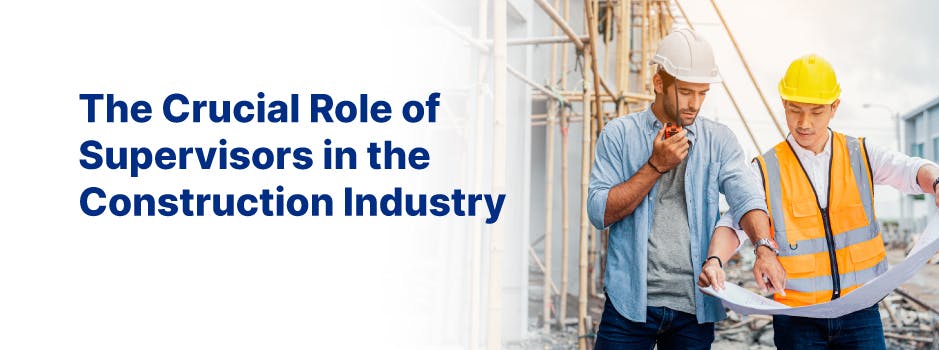Introduction
The construction industry is a multifaceted and complex field that requires skilled professionals to ensure the successful completion of projects. At the heart of this industry are the supervisors, who play a vital role in coordinating and overseeing the various aspects of construction work. This article aims to provide an in-depth understanding of the role and responsibilities of construction supervisors, the skills and qualifications required for the position, and the challenges they face in this fast-paced and ever-evolving industry.
The Role and Responsibilities of Construction Supervisors
Construction supervisors, also known as foremen or site managers, are responsible for overseeing construction projects from inception to completion. They are the linchpin connecting the various stakeholders involved in a project, such as architects, engineers, contractors, and workers, ensuring that all parties work together effectively and efficiently.
Key Responsibilities:
a) Planning and Coordinating
Construction supervisors play a crucial role in planning the daily activities on a construction site. They work closely with architects and engineers to review project plans and specifications, create construction schedules, and allocate resources effectively.
b) Quality Control
Ensuring that construction work is completed to a high standard is an essential aspect of a supervisor's role. They are responsible for monitoring the quality of materials, workmanship, and adherence to project specifications.
c) Safety and Compliance
Construction supervisors must ensure that the work environment is safe and adheres to all relevant regulations, codes, and standards. They are responsible for conducting regular safety inspections, implementing safety measures, and addressing any hazards that arise on-site. A key component of this responsibility is ensuring that they and their team have completed the necessary OSHA training, such as OSHA 10 and OSHA 30 courses.
d) Supervision and Leadership
Supervisors are responsible for leading and managing their team of workers, providing guidance, and resolving any issues that may arise during the course of construction.
Skills and Qualifications Required for Construction Supervisors
Educational Background
While there is no specific educational requirement for construction supervisors, most have completed a high school diploma or equivalent, and many have pursued further education, such as an associate's or bachelor's degree in construction management or a related field.
Training and Certifications
In addition to formal education, construction supervisors should acquire industry-specific certifications and training. Key certifications include OSHA 10 and OSHA 30, which cover essential safety and health topics and are often required by employers. Additional certifications, such as the Construction Management Association of America's Certified Construction Manager (CCM) designation, can further enhance a supervisor's credentials.
Essential Skills
a) Communication:
Effective communication is critical for construction supervisors, as they must coordinate with various stakeholders, convey instructions to their team, and provide progress updates to clients.
b) Problem-solving:
Construction projects can present numerous challenges and obstacles. Supervisors must have strong problem-solving skills to identify and address these issues quickly and efficiently.
c) Time Management:
With tight deadlines and competing priorities, construction supervisors must be skilled in managing their time and ensuring that tasks are completed on schedule.
d) Technical Expertise:
A solid understanding of construction methods, materials, and tools is necessary for supervisors to effectively oversee projects and provide guidance to their team.
Challenges Faced by Construction Supervisors
Managing Tight Deadlines and Budget Constraints
Construction supervisors must navigate tight deadlines and budget constraints, making tough decisions to keep projects on track without sacrificing quality.
Ensuring Worker Safety and Compliance
Maintaining a safe work environment and ensuring compliance with OSHA and other regulatory requirements is a constant challenge for construction supervisors.
Maintaining Quality Standards in a Dynamic Work Environment
Supervisors must ensure that their team adheres to strict quality standards while adapting to changing conditions, unexpected obstacles, and evolving project requirements.
Adapting to Technological Advances and Industry Innovations
The construction industry is continuously evolving, with new technologies, materials, and methods emerging regularly. Supervisors must stay up-to-date with these innovations and adapt their practices accordingly to maintain efficiency and competitiveness in the market.
Construction supervisors are key players in the construction industry, and their contributions are crucial to the success of any project. In addition to the responsibilities and challenges mentioned above, supervisors also play a crucial role in maintaining positive relationships with clients, architects, and other stakeholders. They must possess strong interpersonal skills, including the ability to negotiate, manage conflict, and build rapport.
Furthermore, supervisors must also have a strong understanding of project management principles, including budgeting, resource allocation, and risk management. This knowledge is essential for ensuring that projects are completed on time, within budget, and to the satisfaction of all stakeholders.
Another critical aspect of a supervisor's role is promoting a culture of safety on the worksite. With the hazardous nature of construction work, supervisors must prioritize worker safety and promote a safe working environment. This not only helps to prevent accidents and injuries but also boosts worker morale and productivity.
Finally, construction supervisors must have a strong sense of leadership, providing guidance and mentorship to their team to help them achieve their full potential. By fostering a culture of teamwork and collaboration, supervisors can build a high-performing team that is capable of delivering quality results.
Conclusion
Construction supervisors play an essential role in the construction industry, overseeing projects from inception to completion and ensuring that all aspects of construction work are carried out effectively and efficiently. They must possess a range of skills and qualifications, including education, training, certifications such as OSHA 10 and OSHA 30, and soft skills such as communication, problem-solving, time management, and leadership. As the industry continues to evolve, supervisors who can adapt to new challenges and embrace technological advances will be well-positioned to lead their teams and projects to success.

